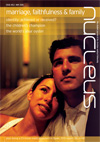The final few weeks of medical school pass quickly. A blur of revision and sign-ups mark the last clinical placement. Even the exam period can pass surprisingly fast, and after a celebration, graduation and a holiday, you soo nfind that your few days of shadowing your new F1 job have started. There can be so much going on that it is easy to forget what a vital time this is,both in your current and future relationships with friends, and your walk with the Lord. Here are some hints and tips from my own and others' experiences.
finish well
You've probably made friends who you'll be in touch with for life at medical school. But you will see a lot less of many of them from now on.These last weeks as a student are important for cementing friendships and reconciling any problems. The pressure of exams often leads to opportunities to talk about your faith; it is unlikely you'll have similar opportunities with people you've grown to know so well for sometime to come.
Finish well in other contexts as well. If you are moving to another town take time to properly say farewells at church. You can be a great encouragement to younger students in CMF and CU at this stage - do try to get to at least some meetings over these last weeks.
plan new connections
If you are moving to a new city, do make at least some connections there. If you've opted into CMF's Welcome Scheme, we will put you in touch with a Christian doctor where you are going who can help.
Think about where you'll go to church before you move. If you're there only for a year, it can be easy to unintentionally spend half the year settling down, particularly if your rota means you are working on a lot of Sundays, and then you miss a few more because you are working far from family and friends. Your current church leader and CMF welcomer should be able to help.If you have only a year, the best advice is to find somewhere that teaches the Bible but not worry too much about other things. (1)
have a real rest
The gap between graduation and F1 may be the longest break you've had since starting clinical medicine - and may be the longest break you have for some time in future. It's a good opportunity to do something different. Some rest and relaxation is vital; but it might also be a good chance to join a CMF Summer Team, or get involved with a holiday club at church. Try not to spend the break reading up on your new job -you almost certainly know enough, and will quickly learn on your feet.
the first few days
Be known as a Christian from the start. It is much more difficult to slip your faith into a quiet conversation a couple of months into a job than it is to talk openly about it at the outset. See you if you can find other Christians in the hospital.There may well be other F1s, and there will almost certainly be nurses or other staff who are believers.
There are also some very practical things worth knowing that may have been less obvious as a student. When does the canteen close? Does it open at night? Which of the useful side doors into the hospital building are locked after 11pm?A few days overlapping with your predecessor is often the best way to find out.
guard your devotional life
The lack of routine when you work a shift system can be really disruptive if you've been used to a regular time with God at the beginning or end of the day. Think about strategies for when routines are disrupted. Travel time can be useful for prayer or listening to talks. Waiting next to the blood gas machine or walking a lengthy corridor can give space to pray.
It might surprise you that your time outside work is probably freer than it was as a student.You don't need to be doing exams or essays as anF1, though you may be very tired initially. Think about what you might read and study in this window before you need to work hard on exams again.
A midweek church group is also important; not only for study and fellowship, but also to ensure you have some Christian contact if your rota causes you to miss multiple Sundays.
look after yourself
The excitement of starting work can easily lead to self-neglect. Of course you will want to invest energy and time in your patients, but limits are needed. You can't be in the hospital every waking hour. Jesus withdrew to rest and pray - if he needed to then we certainly do!
Excessive expectations of yourself are probably as much of a problem as high workload. It can be particularly easy to overestimate your own importance; although you will be very busy, it is the consultant rather than you who takes ultimate responsibility for patient care. Try to avoid becoming involved in stressful situations that are for others to sort out (for example which team looks after which patient, or how to solve the latest bed crisis in A&E), and concentrate on the things which are your responsibility first.
be reassured
Although starting work as a doctor seems a big change in life, much hasn't changed. Jesus is the same yesterday today and forever (Hebrews 13:8)- and will still be the same long after your F1 year has finished.
































